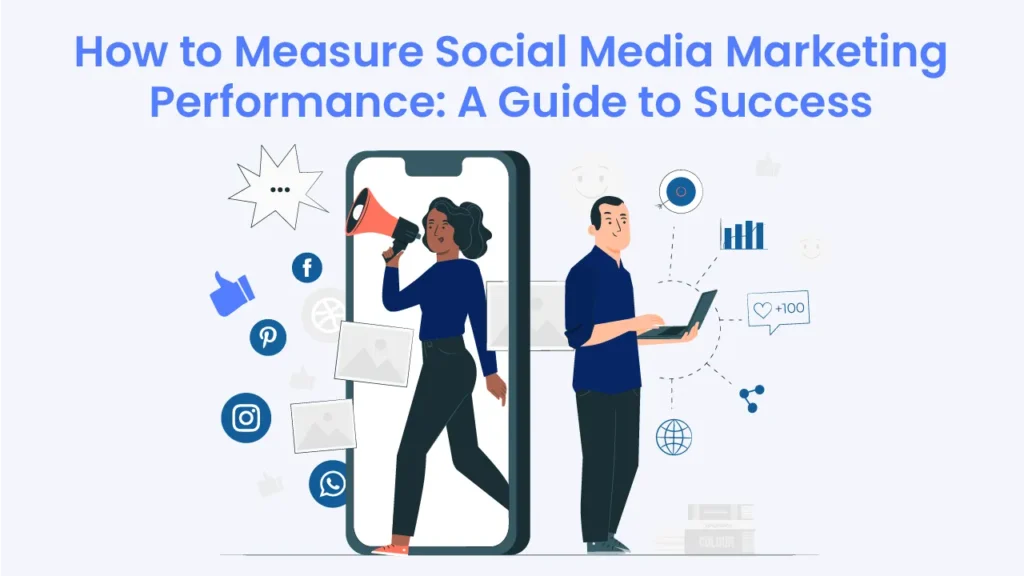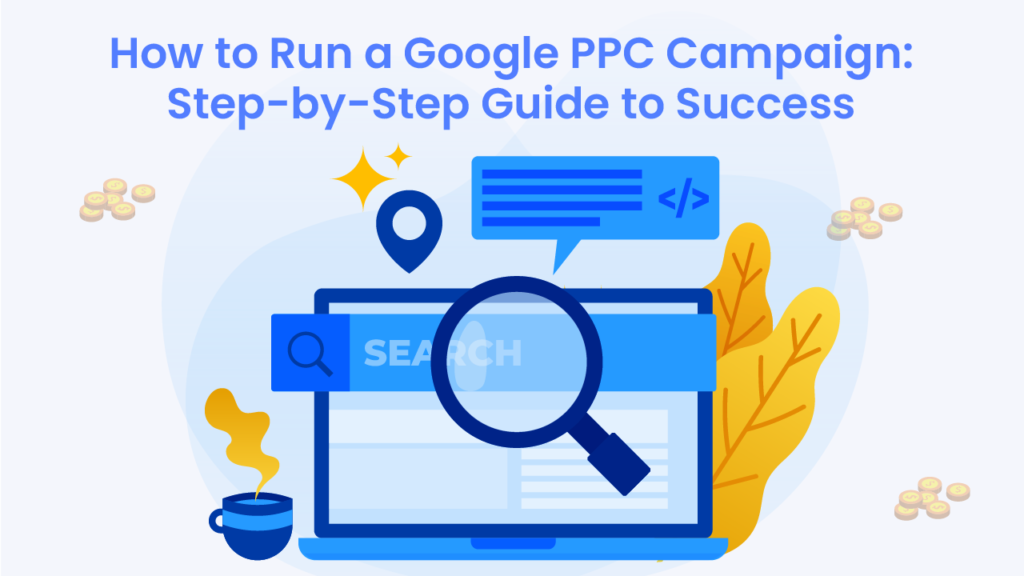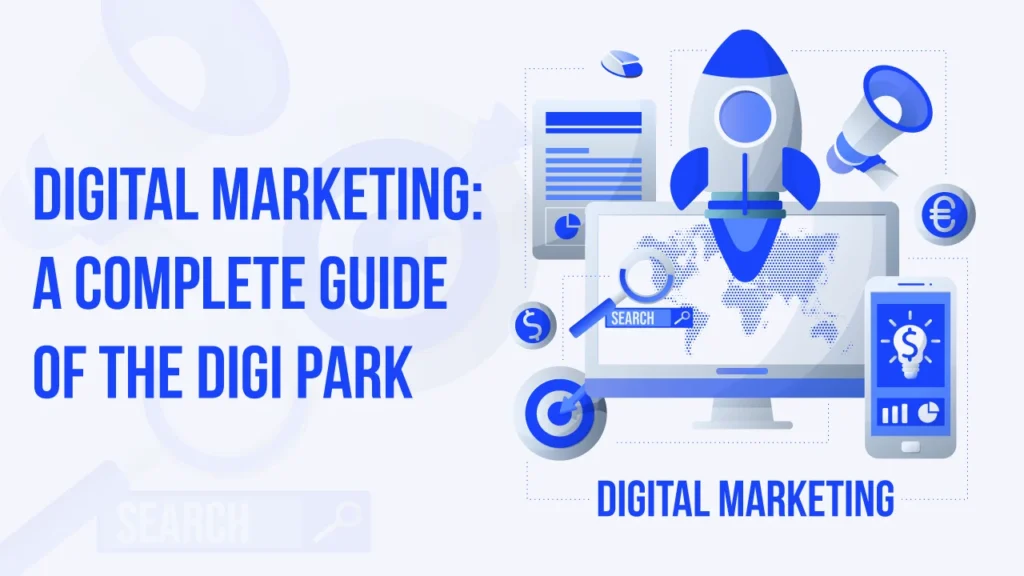Why Measuring Social Media Marketing Performance Matters

Social media offers businesses the opportunity to reach a broad audience, but success requires more than just posting content. To maximize your social media efforts, it’s essential to track and evaluate performance regularly. Understanding how to measure social media marketing performance enables you to: Set Clear Goals and KPIs Before you can measure success, you need clear, measurable goals. Are you aiming to increase brand awareness, boost website traffic, or drive product sales? Knowing your goals will help you define specific Key Performance Indicators (KPIs) that align with your business objectives. What are KPIs in social media marketing? KPIs are measurable metrics that indicate how effectively your social media strategy is achieving its goals. Common KPIs for social media include: Setting KPIs based on your goals is a crucial first step in understanding social media marketing effectiveness. Track Engagement Metrics One of the best ways to measure the success of social media marketing is through engagement metrics. Engagement shows how well your content resonates with your audience and how actively they interact with your brand. Key Engagement Metrics to Track: A high engagement rate means your content is sparking interest and conversation, which can lead to stronger brand loyalty and awareness over time. Measure Website Traffic from Social Media If one of your goals is to drive website traffic, it’s essential to track how much of it comes from social media. Google Analytics is a powerful tool for this, as it shows where your visitors are coming from, how long they stay, and what actions they take on your site. How to track social media marketing performance in Google Analytics: Tracking website traffic allows you to see which social channels are most effective at directing users to your website. Track Conversion Metrics Conversions are actions that you want users to take, like making a purchase, filling out a form, or signing up for a newsletter. Tracking conversions helps answer How do you measure social marketing effectiveness? and gives insight into your social media’s ROI. Conversion Metrics to Focus On: Using tools like Google Analytics and social media platform insights can provide a deeper understanding of how your social media strategies are impacting conversions. Analyze Brand Awareness Metrics If you’re aiming to increase brand visibility, brand awareness metrics are essential. Brand awareness measures how familiar people are with your brand and whether they recognize it among competitors. Brand Awareness Metrics to Measure: Regularly tracking brand awareness metrics helps you understand how far your content is reaching and whether your audience is growing. Monitor Audience Growth and Demographics It’s essential to know who your followers are and whether your audience is expanding. Monitoring your audience growth rate can reveal if your social media efforts are successfully reaching and attracting your target demographic. Demographic Metrics to Track: Keeping track of these metrics helps ensure that your content aligns with your audience’s preferences, improving engagement and relevance. Evaluate Paid Social Media Campaigns If you’re running paid social media campaigns, measuring their performance is crucial. Paid campaigns often focus on conversions or reach, and monitoring key metrics is essential to ensure your budget is spent wisely. Metrics to Measure for Paid Campaigns: Regularly evaluating these metrics allows you to optimize your campaigns for cost-effectiveness, reaching more people at a lower cost. Use Social Listening for Customer Insights Social listening involves monitoring social media platforms for mentions of your brand, competitors, and industry trends. It helps you understand customer sentiment and emerging trends, which can be invaluable for adapting your strategy. Benefits of Social Listening: Tools like Hootsuite, Sprout Social, and Brandwatch can make social listening easier by tracking keywords and analyzing conversations around your brand. Generate Reports and Analyze Data The final step is to compile all your data into a report that highlights key performance metrics. Reporting allows you to review what worked, identify areas for improvement, and plan future social media strategies. Regular analysis ensures that you stay on top of performance and can adapt to changes in audience preferences and industry trends. Common Reporting Tools: Building a habit of reviewing your performance regularly helps make data-driven decisions and refine your social media approach effectively. FAQ Section How do you measure the success of social media marketing?Success can be measured using KPIs like engagement, reach, conversion rate, and ROI, depending on your goals. How to track social media marketing performance?Track performance with tools like Google Analytics, platform insights, and social listening tools. Regularly monitor metrics like engagement, conversions, and audience growth. How do you measure social marketing effectiveness?Effectiveness is gauged by tracking KPIs, such as engagement, brand awareness, and conversion rates, to see if your efforts meet business objectives. What is KPIs in social media marketing?KPIs are measurable indicators of performance. They help gauge the success of your social media activities against your marketing goals. Why Choose The Digi Park for Social Media Marketing? At The Digi Park, we understand that effective social media marketing is data-driven and goal-oriented. Our team uses advanced analytics to measure your social media performance, optimize your campaigns, and ensure every post contributes to your success. From setting up tracking to analyzing data, we make it easy for your brand to thrive online. Ready to improve your social media performance? Contact The Digi Park today to take your marketing strategy to the next level!
How to Run a Google PPC Campaign: Step-by-Step Guide to Success

Running a Google PPC (Pay-Per-Click) campaign is one of the best ways to bring new customers to your business, fast. When done right, a PPC campaign can put your business in front of the people who are actively searching for what you offer. At The Digi Park, we know how important it is to make every dollar count in your marketing budget, so here’s a simple, step-by-step guide to help you run a successful PPC campaign. Understand What a Google PPC Campaign Is A Google PPC campaign is an online advertising model where advertisers pay each time a user clicks on their ad. Unlike organic search results, PPC ads show up at the top of Google’s search engine results pages (SERPs) when users search for specific keywords. The goal is to drive qualified traffic to your website by reaching people who are already looking for products or services like yours. With Google Ads, you can also choose where your ad appears based on demographics, location, interests, and search intent, making it a powerful tool for connecting with your ideal audience. Define Your Campaign Goals Before launching a PPC campaign, it’s essential to know exactly what you want to achieve. Are you aiming to drive more traffic to your website, increase product sales, or boost brand awareness? Clearly defined goals make it easier to measure the effectiveness of your PPC campaign and help guide your ad structure and targeting. Choose the Right Keywords The success of your Google Ads campaign depends on targeting the right keywords—those that your target audience is likely to use. Start by brainstorming a list of keywords relevant to your business, then use tools like Google Keyword Planner to refine your list and identify high-traffic keywords within your budget. Tips for Choosing Effective Keywords: Set Your Budget and Bids How much does it cost to run a PPC campaign? The cost of a PPC campaign varies depending on factors like keyword competition, industry, and ad placement. Understanding your budget and adjusting bids is key to running a cost-effective campaign. Create Compelling Ad Copy Your ad copy is the first thing potential customers see, so it needs to grab attention and make an impact. Keep it clear and concise, focusing on what sets your business apart and what value it offers. Use strong calls-to-action like “Learn More,” “Get Started,” or “Contact Us Today” to encourage clicks. Tips for Effective Ad Copy: Utilize Ad Extensions Ad extensions provide additional information and allow you to occupy more space on the search results page. They’re free to add and can significantly improve your ad’s performance. Types of ad extensions to consider: Using ad extensions can make your ads more noticeable and provide users with valuable information upfront. Optimize for Location and Audience If you’re a local business, targeting the right area is key. Using Google My Business ads is a great way to connect with local customers. For broader campaigns, leverage Google’s audience targeting to reach specific demographics like age, location, and interests, ensuring your ads reach the right people at the right time. Monitor and Adjust Your Campaign Once your Google PPC campaign is live, regularly monitor its performance. However, running a successful Google PPC campaign doesn’t end here—it’s essential to continuously monitor and optimize. Key Metrics to Track: Monitoring these metrics helps you identify areas for improvement and allows you to make adjustments as needed. For example, if a specific keyword isn’t performing well, consider lowering your bid or adding it to your negative keywords list. Measure Your ROI and Analyze Results Google Ads provides various analytics tools to track the success of your campaign. Calculate your return on investment (ROI) by comparing how much you spent on the campaign with the revenue it generated. This will help you understand what’s working and guide your future campaigns for even better results. Why Choose The Digi Park for Your PPC Campaign? Running an effective Google Ads campaign requires strategy, time, and careful monitoring. At The Digi Park, we specialize in helping businesses like yours get the most out of every PPC dollar. Whether you’re new to Google Ads or looking to improve your existing campaigns, our team can help you drive better results with data-driven strategies and expert insights. Ready to make your PPC campaign a success? Contact The Digi Park today and let’s grow your business together! FAQ Section How do you run a successful PPC campaign?Success comes down to clear goals, strategic keyword selection, precise targeting, and continuous monitoring. Experiment, track results, and adapt based on what works best. How much does it cost to run a PPC campaign?PPC costs vary depending on your industry, keywords, and bid strategy. Google allows you to control spending by setting a daily budget and CPC bid. How do I run Google My Business ads?Google My Business ads, available through local service ads, are perfect for targeting nearby customers. You’ll need a verified Google My Business account to create these ads, allowing your business to appear on Google Maps and local search results.
Digital Marketing In Bangladesh: A Complete Guide of The Digi Park

Digital marketing has transformed the way businesses interact with their customers. Understanding digital marketing is critical for any organization trying to prosper online in today’s rapidly evolving digital market. So, what exactly is digital marketing? Simply simply, it refers to all marketing operations that involve the internet or an electronic device. This includes social media campaigns, SEO, email marketing, and online advertising. Digital marketing services are vital for businesses looking to boost their online presence and drive growth. Why is this important? Because digital marketing enables you to target specific audiences, track campaign efficacy, and adapt plans in real time. This implies you can make data-driven decisions that provide better outcomes. Key Performance Indicators (KPIs) are must in measuring the success of your digital marketing efforts. These metrics help you understand how well your strategies are performing and where improvements can be made. Whether you’re working with a full-service online marketing agency or handling marketing in-house, tracking KPIs ensures that your marketing investments are delivering value. The Major Components of Digital Marketing Social media marketing Social media marketing is a dynamic subset of digital marketing that leverages social media platforms to connect with your target audience, build brand awareness, drive website traffic, and ultimately, boost sales. Unlike traditional marketing, SMM allows for direct interaction with customers, fostering relationships and loyalty. By crafting engaging content, participating in conversations, and utilizing data analytics, businesses can effectively reach and influence their desired demographic. Whether it’s building a strong brand identity, generating leads, or increasing customer satisfaction, social media marketing offers unparalleled opportunities for growth in today’s digital landscape. Search engine optimization Search Engine Optimization (SEO) is the way of optimizing your website to rank higher in search engine results pages (SERPs). When users search for products or services related to your business, SEO ensures that your website appears prominently, increasing visibility and attracting potential customers. Effective SEO involves a combination of technical, content, and authority-building strategies. By understanding search engine algorithms, conducting keyword research, creating high-quality content, building backlinks, and optimizing website structure, you can significantly enhance your website’s organic search rankings. A well-executed SEO strategy drives organic traffic, improves user experience, and establishes your business as a trusted authority in your industry. Email marketing Email marketing is a powerful digital marketing strategy that involves sending targeted messages to a subscribed audience. By building and nurturing relationships with potential and existing customers, businesses can effectively promote products, services, and brand loyalty. This cost-effective channel allows for personalized communication, enabling marketers to deliver relevant content, exclusive offers, and timely updates. With careful segmentation and automation, email campaigns can be optimized to achieve specific goals, such as lead generation, customer retention, and sales conversions. To succeed in email marketing, it’s essential to prioritize deliverability, engagement, and data analysis. By crafting compelling subject lines, designing visually appealing emails, and tracking key metrics, businesses can maximize the return on investment of their email campaigns. Content marketing: Blogging Blogging is a cornerstone of content marketing, involving the creation and publication of regular articles on a specific topic. By sharing valuable insights, stories, and information, businesses can attract and engage their target audience, establish thought leadership, and drive website traffic. Through consistent blogging, you can build a loyal following, improve search engine rankings, generate leads, and foster customer relationships. By aligning your blog content with your overall business objectives, you can position your brand as a trusted authority in your industry. Effective blogging requires a strategic approach, including keyword research, compelling storytelling, and optimization for search engines. When done right, blogging can be a powerful tool for achieving your marketing goals. PPC Pay-Per-Click (PPC) is a form of online advertising where advertisers pay a fee each time one of their ads is clicked. This model allows businesses to quickly reach their target audience and drive immediate traffic to their website. PPC campaigns are typically run on search engines like Google Ads and Bing Ads, as well as social media platforms such as Facebook, Instagram, and LinkedIn. By bidding on relevant keywords and creating compelling ad copy, businesses can secure prominent placement in search results and news feeds. The effectiveness of PPC campaigns can be measured through key performance indicators (KPIs) like click-through rates, conversion rates, and return on investment (ROI). Continuous optimization and A/B testing are essential for maximizing the performance of PPC campaigns and achieving desired business objectives. Paid advertising Paid advertising is a marketing strategy where businesses pay to display their ads to a targeted audience on various digital platforms. It’s a powerful tool for generating immediate visibility, driving traffic, and achieving specific marketing goals. Compared to organic methods like SEO and content marketing, paid advertising offers faster results, allowing businesses to reach their desired audience quickly and effectively. By carefully selecting advertising platforms, crafting compelling ad copy, and optimizing bids, marketers can maximize the return on investment (ROI) of their paid campaigns. Web analytics Web analytics is the measurement, collection, analysis, and reporting of web data to understand and optimize web usage. It’s the process of gathering insights about website visitors, their behavior, and interactions to make data-driven decisions for improvement. By tracking key metrics like website traffic, bounce rate, conversion rates, and user engagement, businesses can gain valuable insights into website performance. These insights can be used to enhance user experience, improve website design, optimize marketing campaigns, and ultimately drive business growth. Web analytics tools provide detailed reports and visualizations that help identify trends, patterns, and opportunities for optimization. By understanding your audience and how they interact with your website, you can make informed decisions to increase conversions, boost sales, and build customer loyalty. Affiliate marketing Affiliate marketing is a performance-based marketing strategy where businesses reward affiliates for each visitor or customer brought by the affiliate’s own marketing efforts. Affiliates, typically individuals or other businesses, promote a company’s products or services in exchange for a commission on sales generated from their referrals. This mutually beneficial partnership allows businesses to expand their reach without investing
